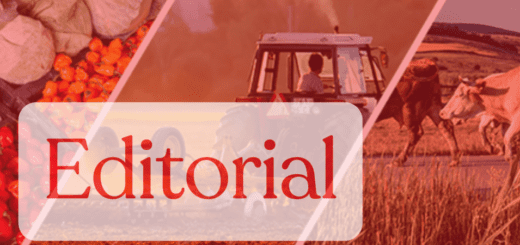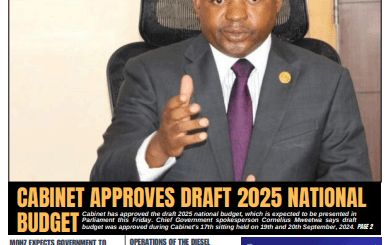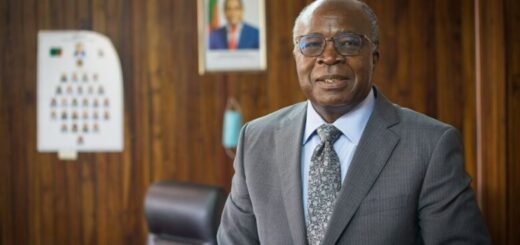The Mining Grave Yards: What A Senseless Loss Of 10 Lives
The loss of 10 lives in yet another mining accident is not just a tragedy; it’s an unspeakable outrage. This isn’t the first time we’ve witnessed such devastation, and if we continue on this path, it certainly won’t be the last.
But as we mourn these 10 miners, let us not forget that what we are truly facing is the collapse of ten families—breadwinners, mothers, fathers, and children have been left devastated, perhaps permanently.
These aren’t just miners; they are providers, people who went underground in the hope of securing a better future for their loved ones. Now, the future for those families is buried under that same earth.
What a senseless tragedy indeed. How many more must die before we realize that we, as a nation, are failing?
While it may be easy to lay the blame at the feet of these so-called “illegal” miners for failing to adhere to safety measures, it would be a gross injustice to ignore the government’s role in this never-ending cycle of loss.
The real question is: why aren’t local miners given the means and the opportunity to mine safely? Why are they forced into this deadly game of chance, mining in unsafe conditions, all because the government has failed to create an enabling environment?
For too long, we have criminalized these miners, chasing them down as if they were thieves in their own country. It’s time to call them what they are: Zambians, fighting for a right to benefit from the resources of their own land.
It’s time to regularize them, license them, and ensure that they operate under safe conditions. The failure to do so falls squarely on the government’s shoulders. These miners aren’t illegal—they are desperate, and desperation breeds danger.
It’s a cruel irony that this tragedy unfolds as Zambia hosts its inaugural Mining and Investment Insaka, where policymakers sit in air-conditioned rooms, sipping tea, and discussing the potential of the mining sector.
And yet, outside, ten lives have been lost in pursuit of the very minerals that those in the KK Conference Centre are making plans to exploit.
After 100 years of mining in this country, how is it that we still haven’t learned anything?
The solution has always been clear. Zambia is blessed with vast mineral wealth—gold, copper, and cobalt, all critical in today’s global economy.
Why, then, are we failing to organize local miners into cooperatives, to license them, to provide them with the necessary equipment? Instead of throwing money around in Constituency Development Funds (CDF) that often go unaccounted for, why not invest in these miners?
Why not empower them with the tools and knowledge they need to mine safely?
Imagine if, instead of the current haphazard operations, we had organized open-pit mining run by cooperatives. Equip them with front-end loaders, tipper trucks, and excavators.
Let each cooperative work two days a week under proper supervision. How many lives could we save? How many families could thrive instead of being torn apart by tragedy?
And yet, here we are. Another accident, another set of lives lost, while those responsible for policy and regulation remain detached from reality.
Where is our humanity? Where is our leadership? Why are Zambians being reduced to mining gold with picks and shovels in 2024? Why are our people still dying like animals in tunnels, while foreign investors and policymakers discuss mining as though it were just an academic exercise?
It’s disgraceful. After 100 years of mining, we should have more to show for it. But instead of a thriving, empowered population, we have families in mourning, children without fathers, mothers without sons.
The wealth of this country should belong to Zambians, yet we allow foreigners to dominate while our people risk their lives for scraps.
How many more tragedies must we witness before we wake up to the grim reality? In December 2023, 25 miners were trapped and killed in Chingola after heavy rains caused the soil to collapse in Senseli mine.
In April this year, two more miners died, buried alive in Cop 5 KCM dump site, also in Chingola. A similar accident in February claimed another life. Are we so desensitized that we will allow this to continue?
This is not the Zambia we envisioned at independence. This is not the Zambia our forefathers fought for.
Should survival come at the cost of human dignity and life? These miners are risking everything for the chance to provide for their families. But we’ve forced them into a corner—fighting for survival in conditions that are little better than death traps. What a shame!
It’s time for change. The solution isn’t more over-regulation or punitive measures; it’s about simplifying the process for Zambians to mine legally and safely. We can’t afford to let this continue. Every life lost in this manner is a stain on our conscience, a mark of our collective failure.
Buried under that rubble could be a future president, a finance minister, a leader who could shape Zambia’s future. These aren’t just miners—they are our people. They deserve better. We all deserve better.
Lwiili mourns today, and Lwiili will never forget.








